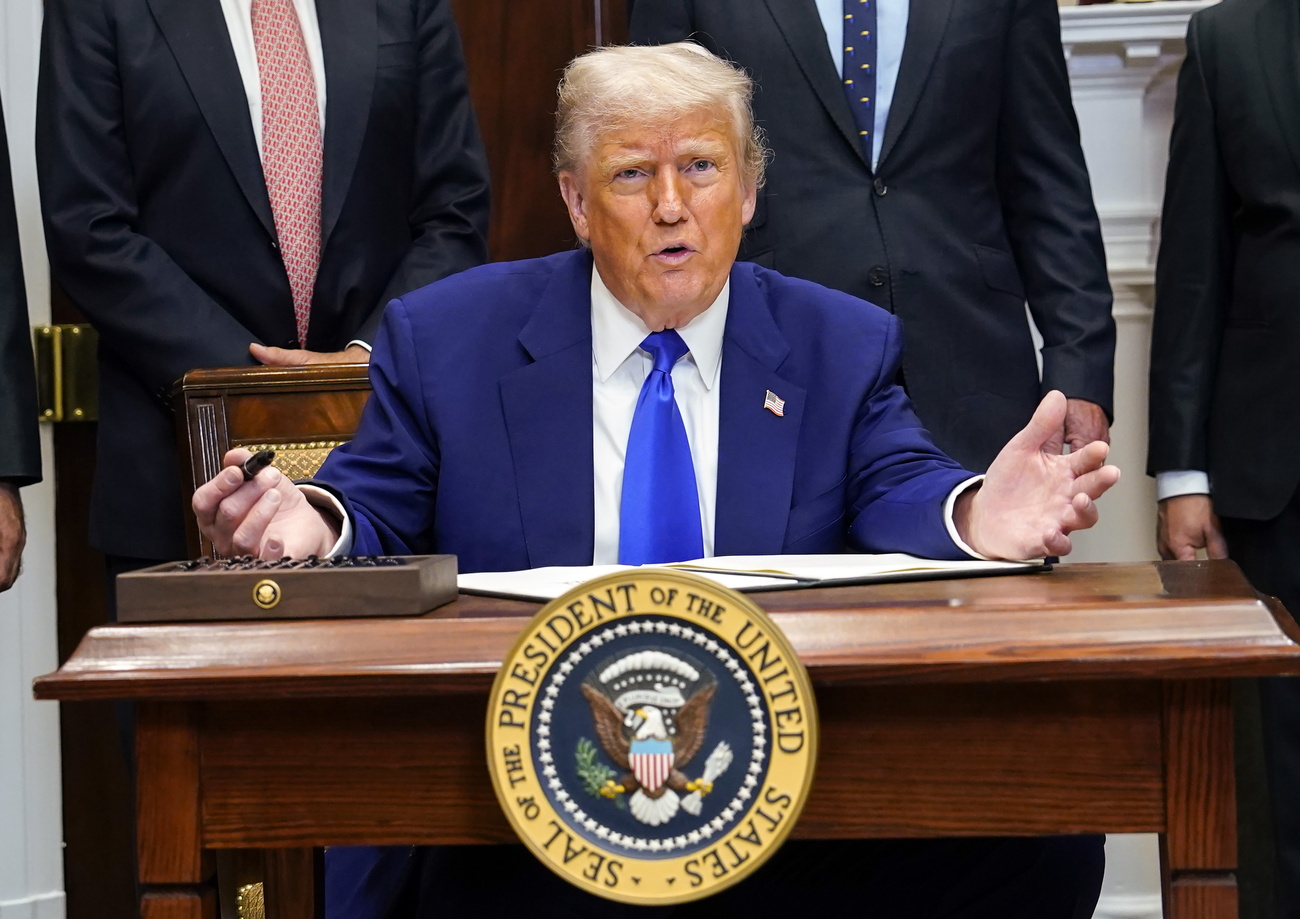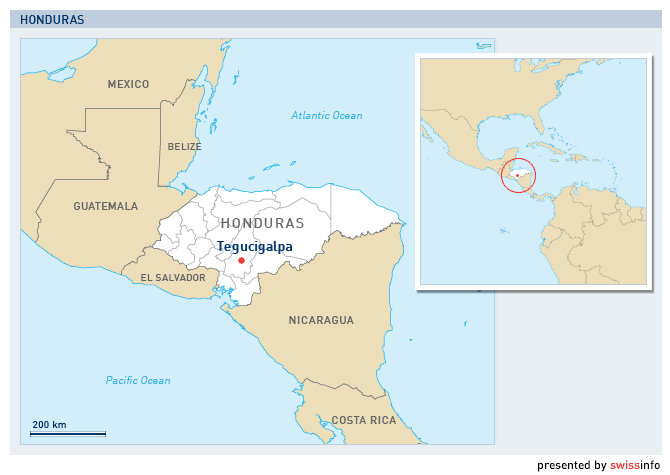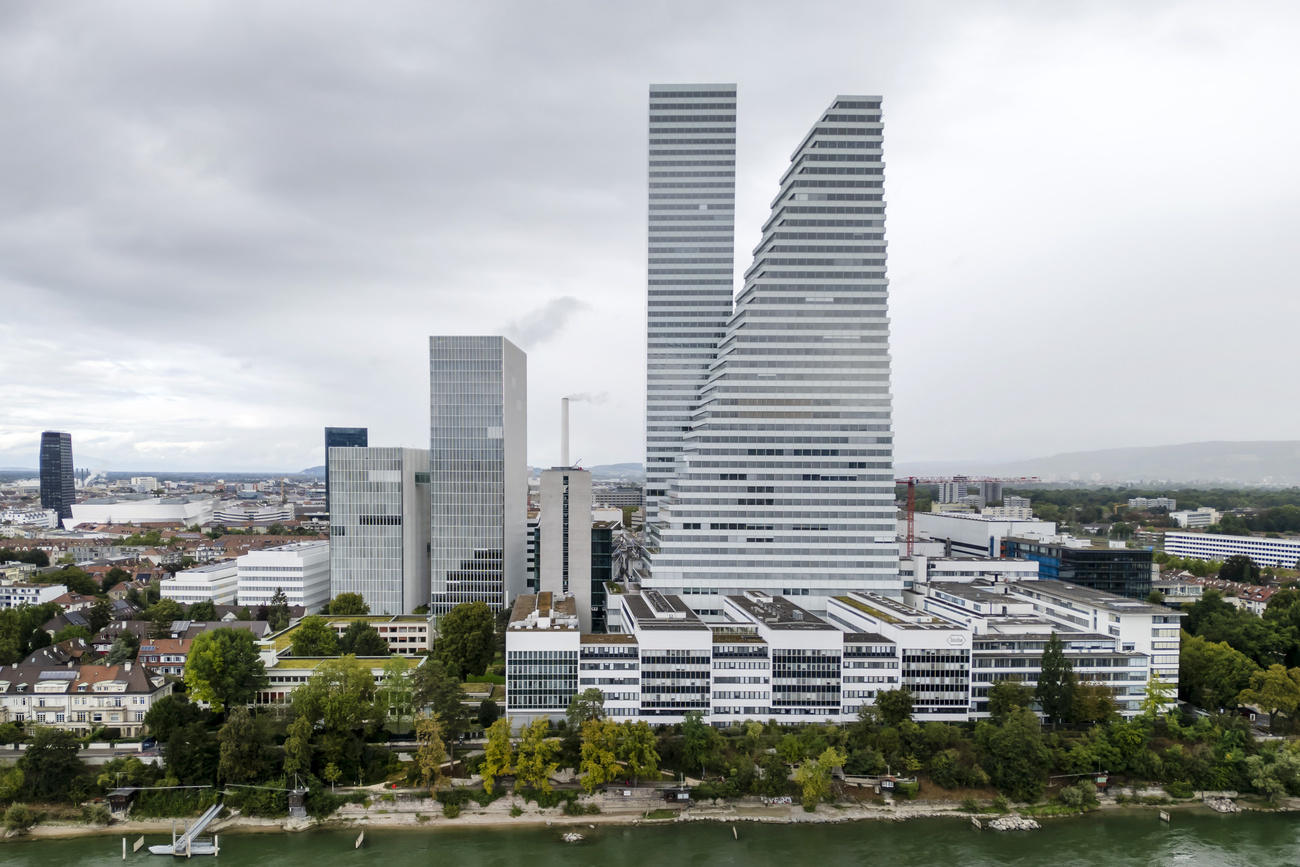
Diplomat predicts Honduras coup will fail

The military coup in Honduras that ousted President Manuel Zelaya is destined to fail after widespread international condemnation, says a Swiss diplomat.
Walter Suter, former Swiss ambassador to Venezuela, told swissinfo.ch that the first military putsch in Central America since the Cold War was also unlikely to endanger democracies in other parts of Latin America.
On Tuesday Honduras’ interim government battled against a tide of international support for Zelaya, who vowed to return home in two days after troops toppled and exiled him in a power struggle over plans for constitutional change.
Honduras faces growing pressure to reinstate Zelaya, an ally of Venezuelan President Hugo Chávez, after he was forced out on Sunday and spirited away to Costa Rica by the army.
The Honduran capital Tegucigalpa was mostly quiet by Monday night after hundreds of Zelaya supporters clashed during the day with riot police and troops to demand his return to power.
Suter said the action by the Honduran military leaders resembled an injured animal lashing out.
“But I am very confident that things will return to normal and Zelaya’s legitimate government will be reinstated,” he told swissinfo.ch, adding that he was certain the Honduran crisis would not lead to political instability across Latin America.
“This would be the case if there was no real solidarity. But the members of the Organization of American States (OAS) have opposed this action which they consider illegal,” said Suter, who has also served as a diplomat in Chile, Argentina and Paraguay.
“If the solidarity of all Latin American states manages to re-establish order in Honduras, it will send a real signal that democracies are being consolidated in the region,” he added.
Illegal coup
Latin America, the United States, the United Nations and the European Union have piled diplomatic pressure on the new government to quit.
In Washington, President Barack Obama said the coup was illegal and that President Zelaya remained the democratically elected president there.
“It would be a terrible precedent if we start moving backwards into the era in which we are seeing military coups as a means of political transition rather than democratic elections,” said Obama.
Latin American governments went further in their condemnation and said they would withdraw their envoys. Several neighbouring states said they would cut trade for 48 hours.
Suter, who has worked in Latin America for decades, felt the international support for Zelaya would ultimately sink the coup leaders.
According to the Swiss expert, Obama’s swift stance on the first Latin American crisis of his presidency was crucial.
“Although it is timid, the statement by the Obama government echoes their position at the Fifth Summit of the Americas in Trinidad and Tobago in June 2009. It confirms that the US strategy for Latin America is to only recognise constitutional democratic processes,” said Suter.
Upset the elites
Zelaya, a cowboy hat-wearing logging magnate, has upset conservative elites with his growing alliance with Chávez.
He has riled the armed forces, courts and Congress with his quest to change the constitution to let presidents seek re-election beyond a single four-year term.
Zelaya was arrested in his pyjamas on Sunday morning by soldiers who stormed his residence and flew him into exile.
Speaking from Nicaraguan capital, Managua, on Monday after a meeting with leftist allies in the region, Zelaya announced his intention to return home on Thursday together with the head of the OAS.
“I’ll be finishing my term of four years whatever you – you groups of oligarchs, you the owners of the media – may want,” he said.
It is unclear how Honduras’s current leaders would react but they have previously said that Zelaya would be arrested and jailed if he set foot in the country.
On Monday the Swiss foreign ministry issued a statement expressing concern over the latest events in Honduras.
It called on those responsible “to re-establish constitutional order and the rule of law”. It also called for a democratic and peaceful resolution of the crisis.
Marcela Águila Rubín, swissinfo.ch (Adapted from Spanish by Simon Bradley)
Central America is a priority region for the Swiss Agency for Development and Cooperation (SDC), with SDC activities focusing on Nicaragua, Honduras and El Salvador. Cooperation between the countries in these priority areas is fostered through regional projects which also involve the remaining countries in the region.
In the humanitarian aid sector, SDC’s commitment focuses mainly on prevention and preparedness, given the repeated threat of natural disasters.
SDC’s annual expenditure totals some SFr22 million at the level of the overall Central America programme. Of this Switzerland invests SFr5-7 million per year in Honduras, in particular in agriculture, environmental protection and providing drinking water.
The SDC runs a Coordination Office in the capital Tegucigalpa for carrying out its projects. Some 270 Swiss citizens are resident in the Central American country.
Honduras is the second largest country in Central America after Nicaragua with a population of 7.2 million. It is bordered by Guatemala to the north and west, El Salvador to the southwest and Nicaragua to the southeast.
An ally of the United States during the Cold War, Honduras has moved closer to socialist Venezuelan President Hugo Chávez since Zelaya took power in 2006.
Honduras suffers from massive unemployment and is one of the poorest countries in Latin America, relying on money from Hondurans living in the United States for more than 25 per cent of its gross domestic product.
An exporter of coffee and bananas, the country has attracted textile and mining investment over the past decade as it seeks to diversify its economy away from agriculture.
Prior to the crisis, the government said it expected the Honduran economy to grow less than two per cent this year as the global economic crisis hurts exports, remittances and tourism.
The economy was devastated in 1998 by Hurricane Mitch which killed 13,500 people across Central America and caused $5 billion in damage.


In compliance with the JTI standards
More: SWI swissinfo.ch certified by the Journalism Trust Initiative





























You can find an overview of ongoing debates with our journalists here . Please join us!
If you want to start a conversation about a topic raised in this article or want to report factual errors, email us at english@swissinfo.ch.